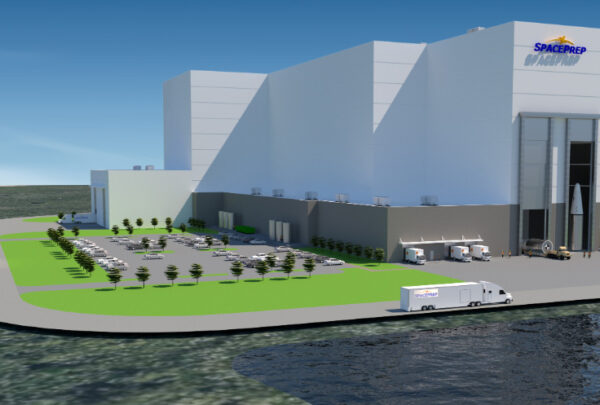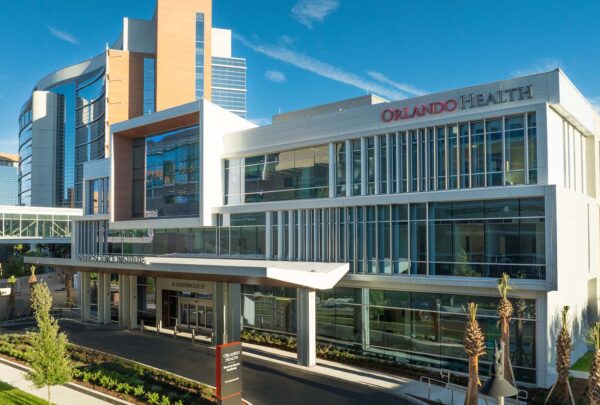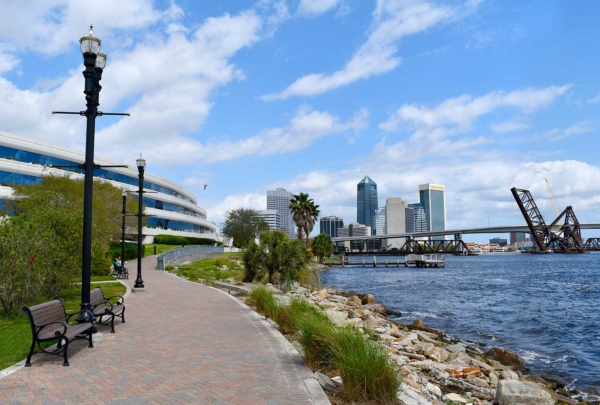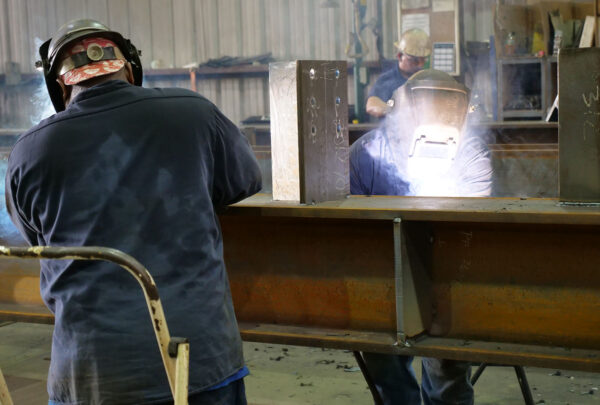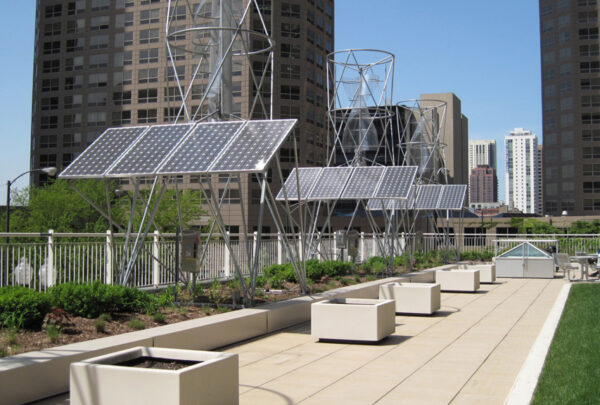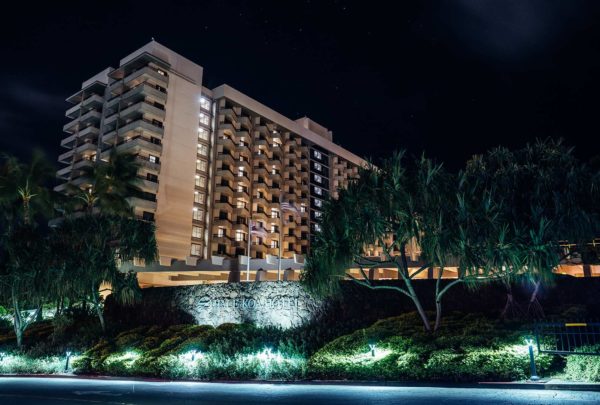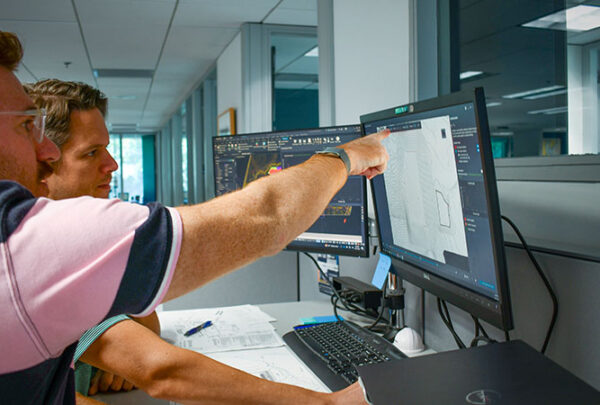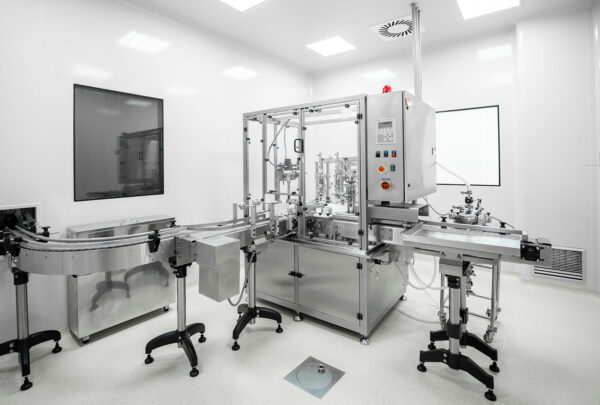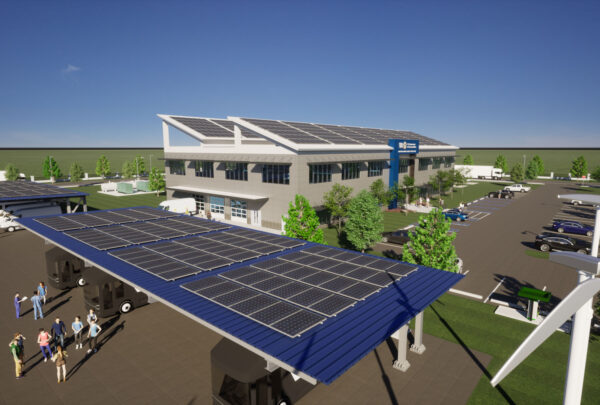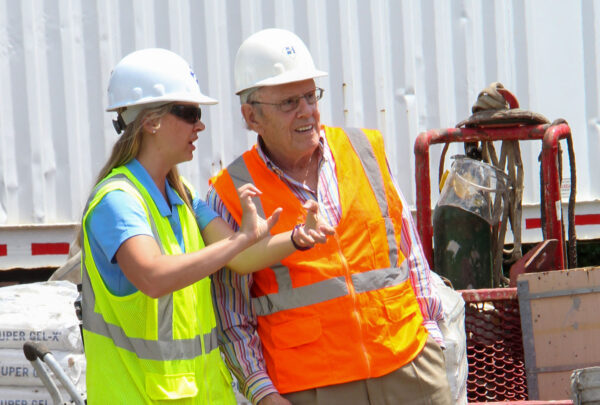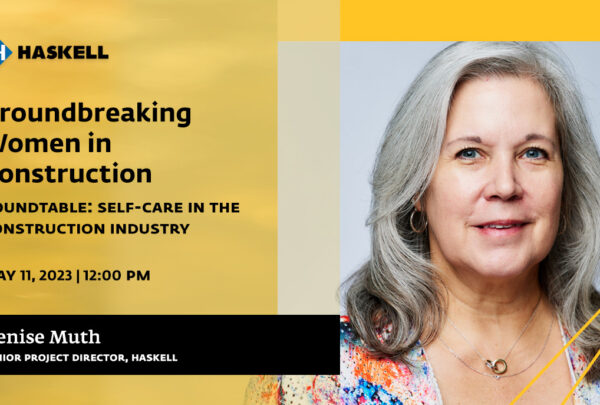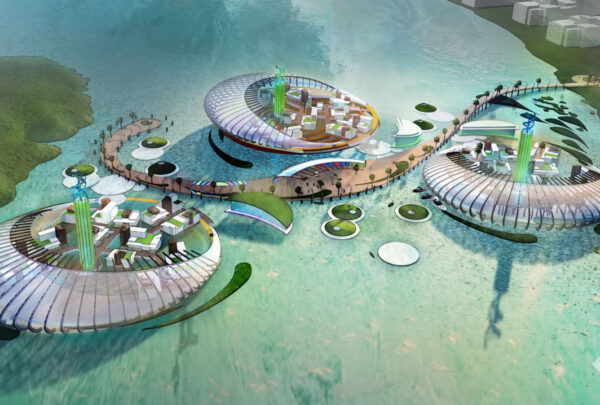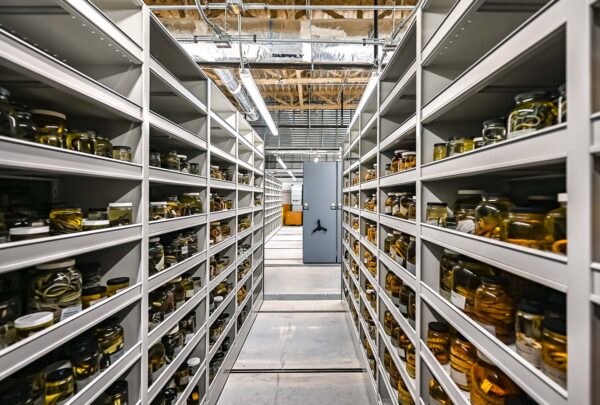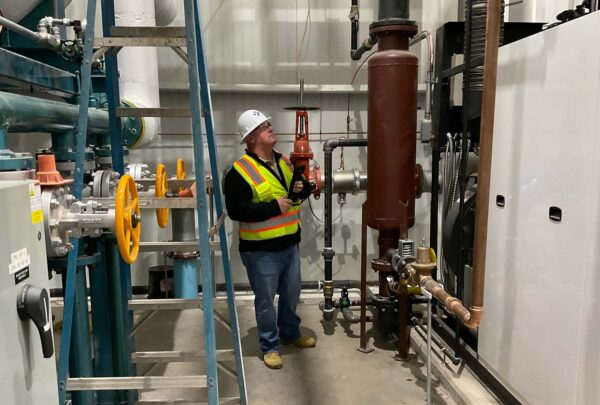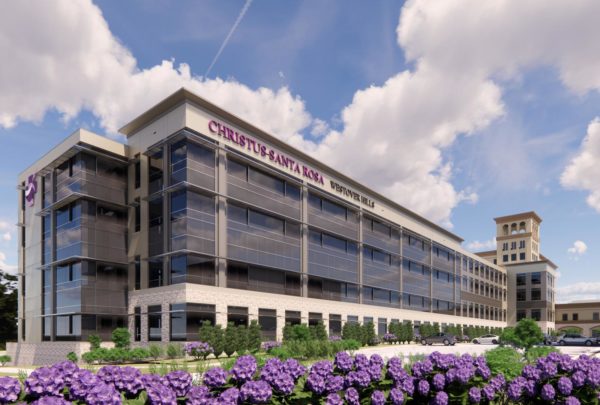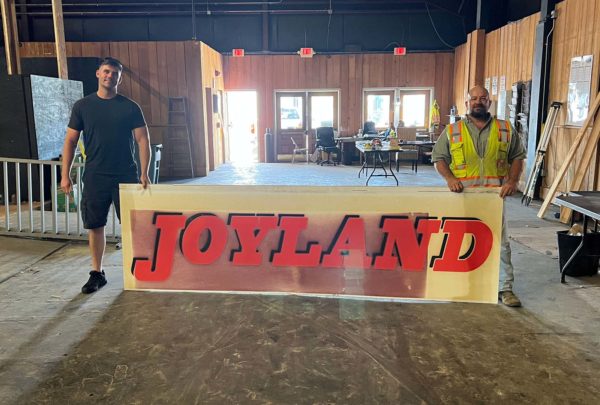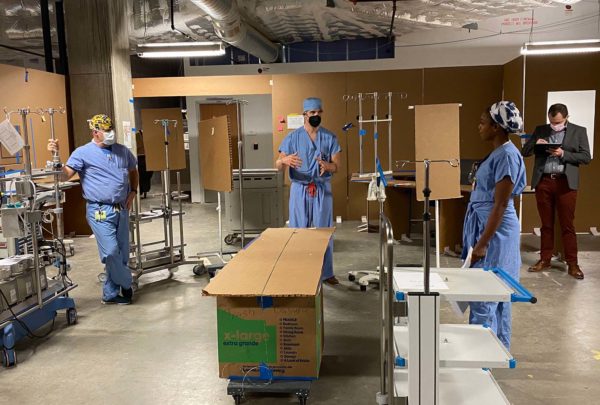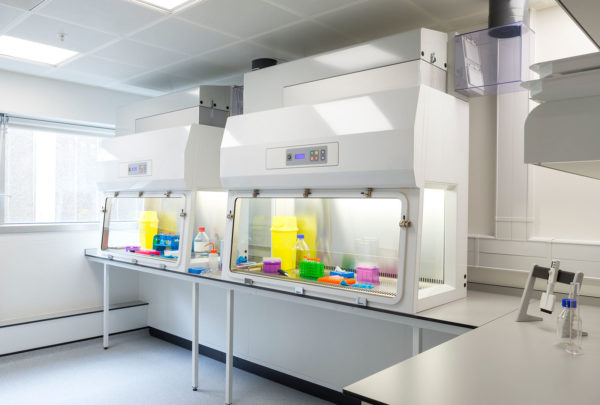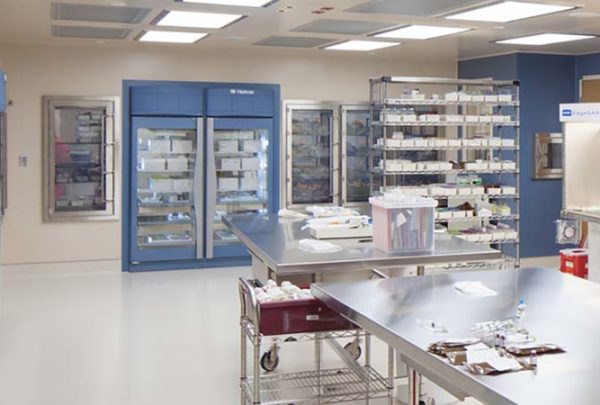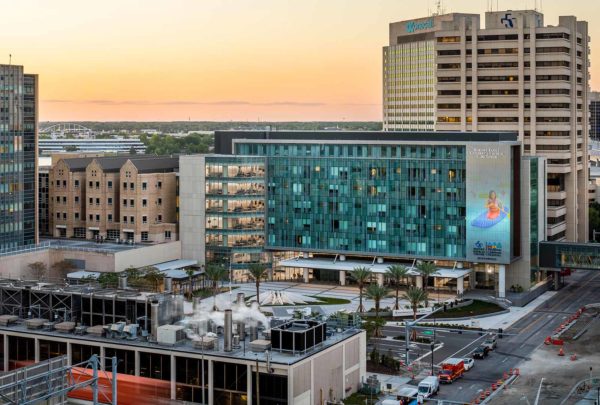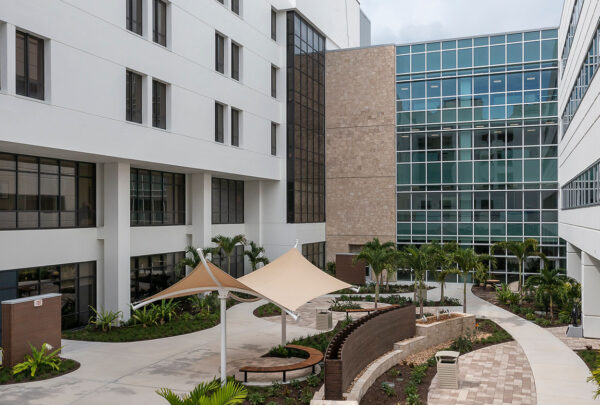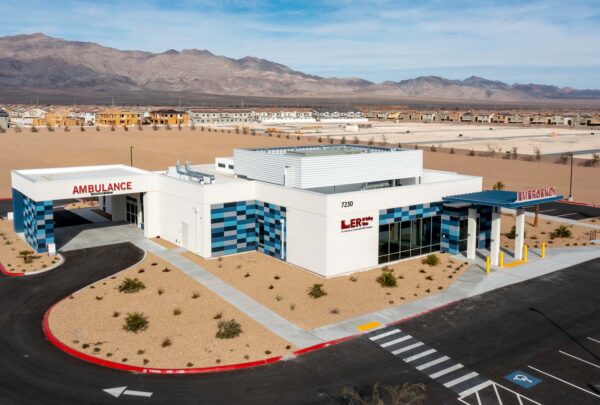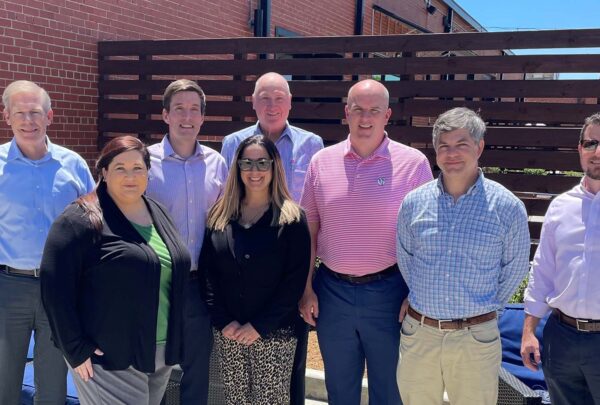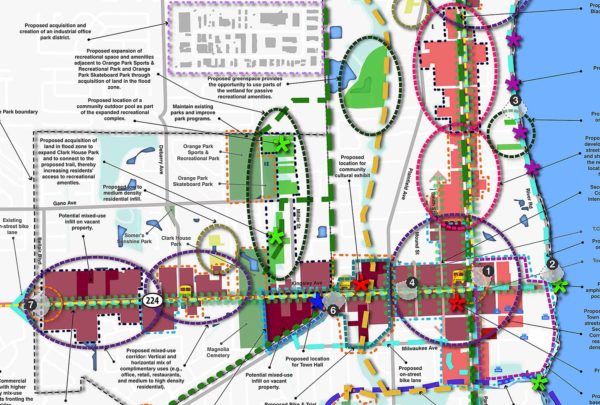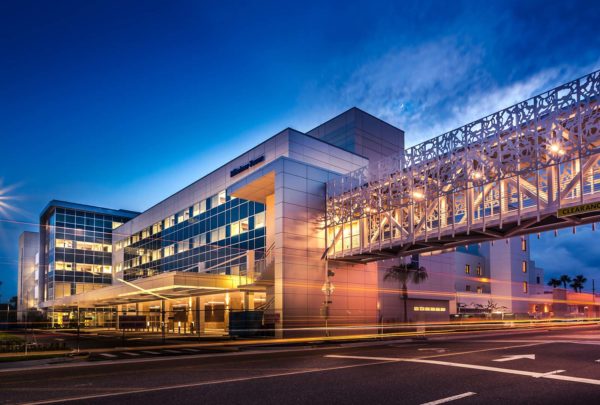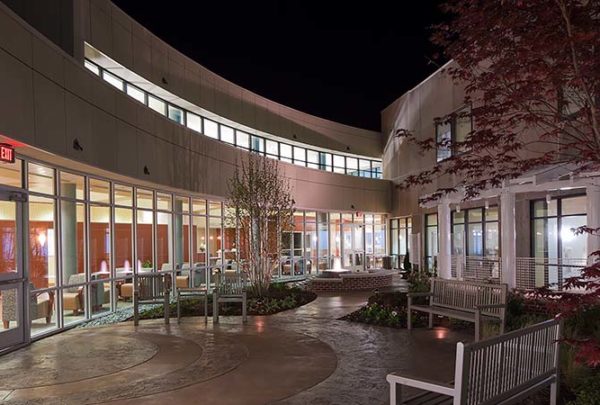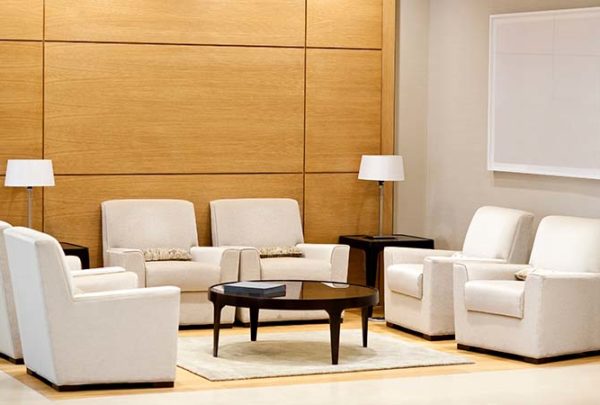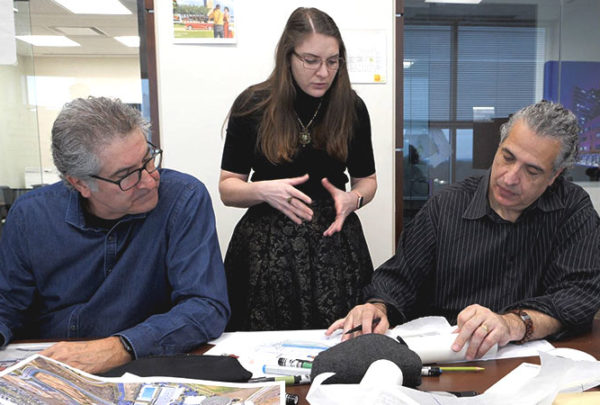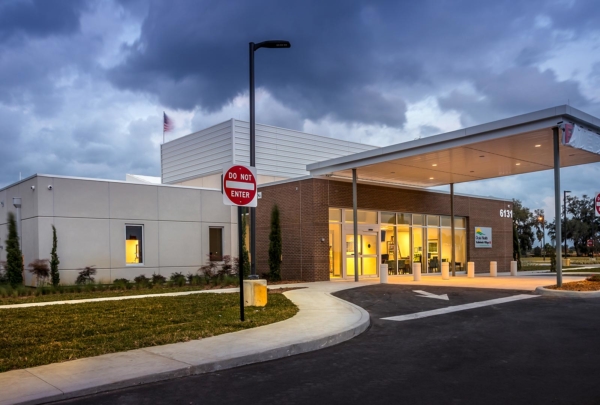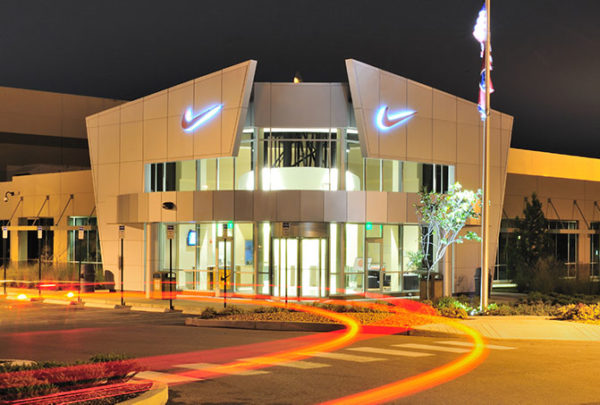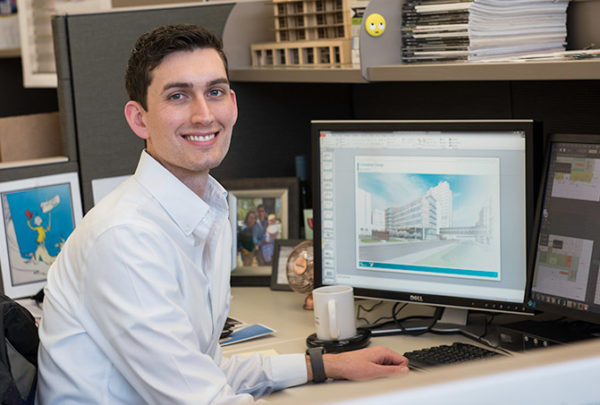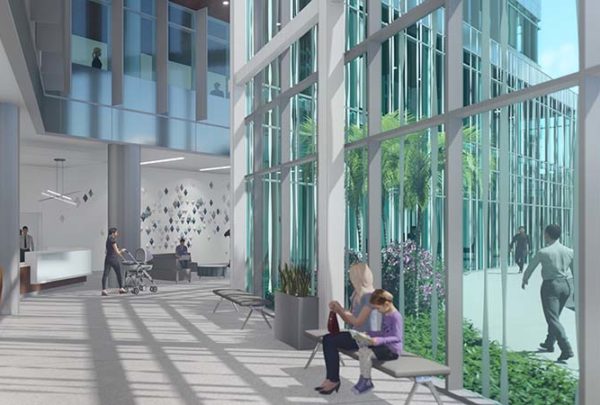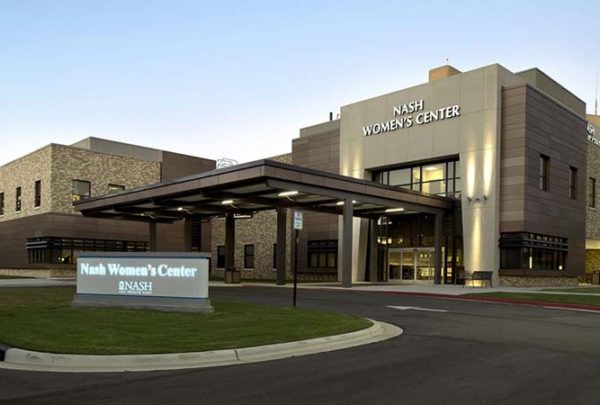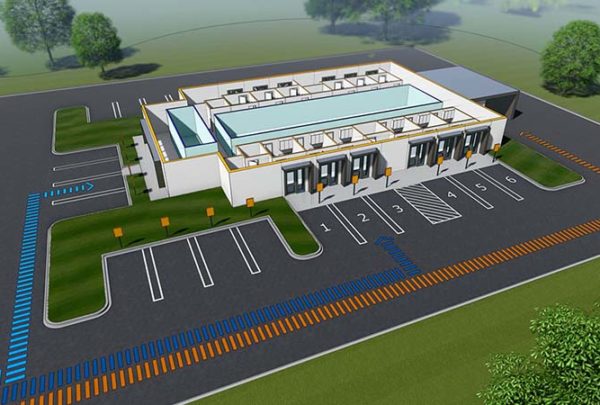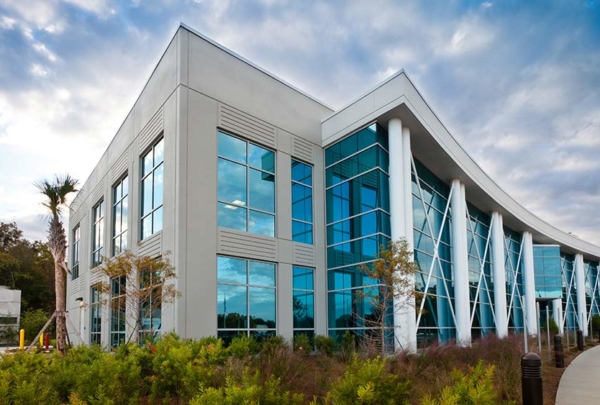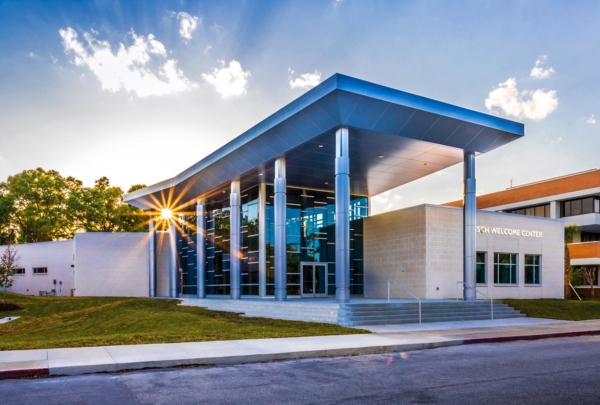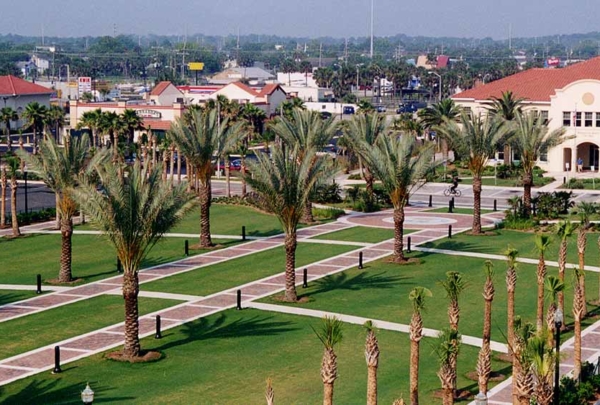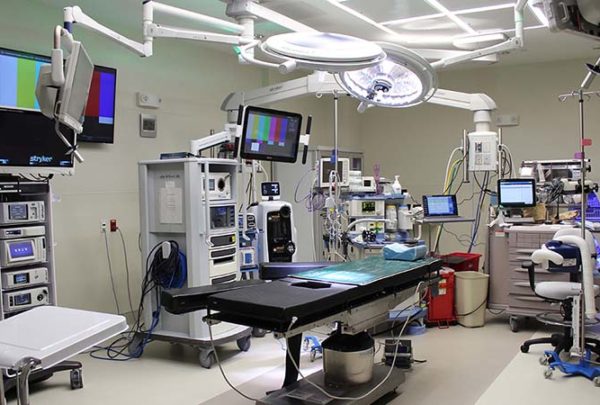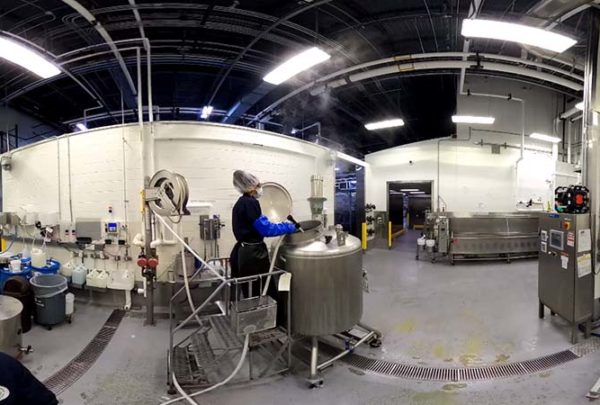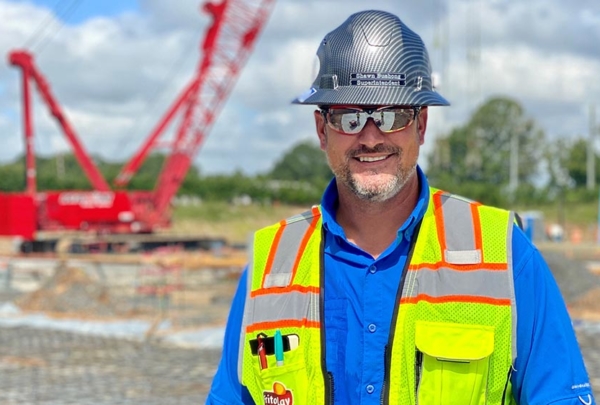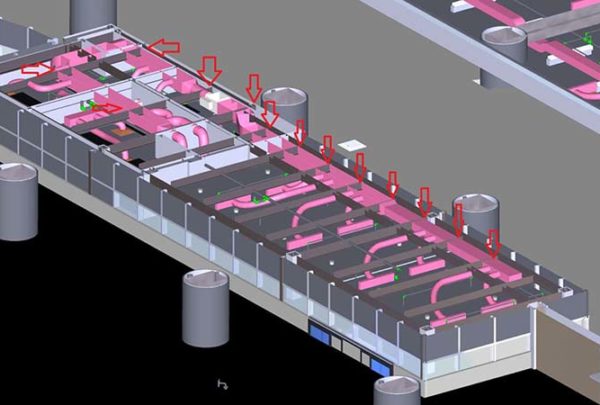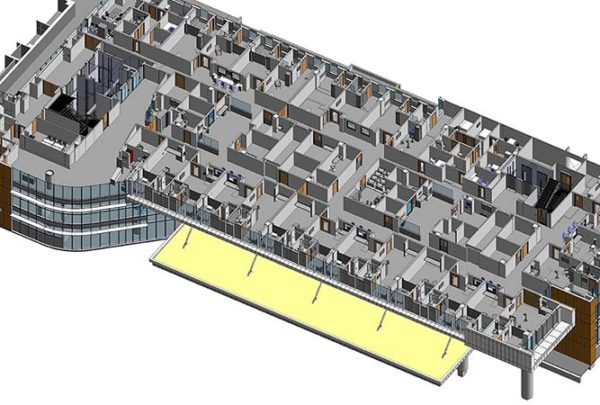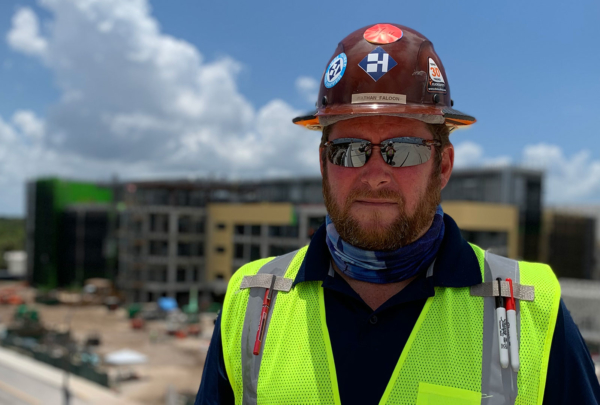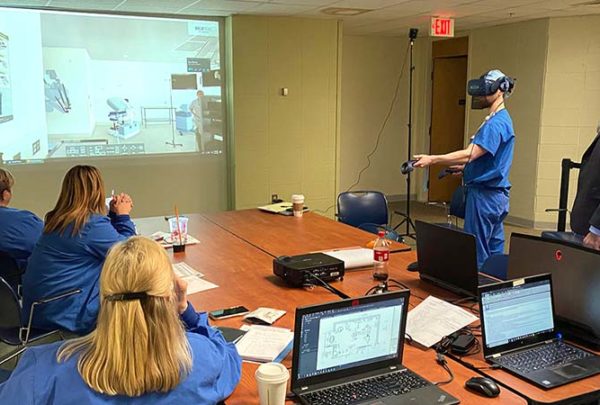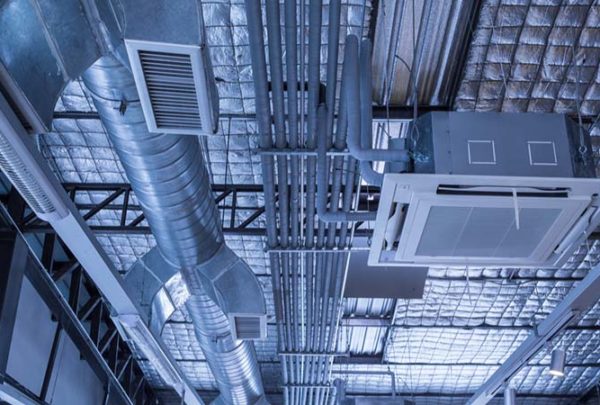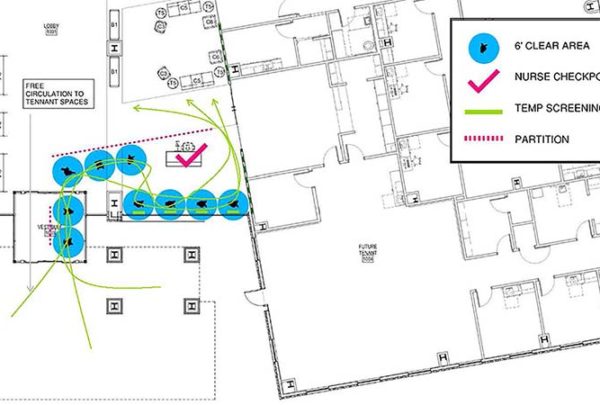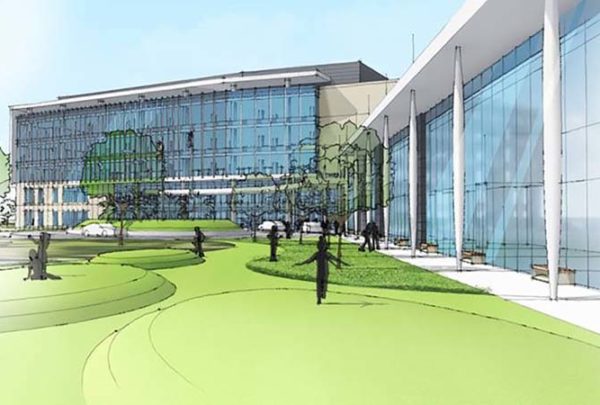People are innately driven to interact with nature, and biophilic design is an approach that accommodates this desire by integrating natural elements and processes into the built world. Nowhere is that more critical than in healthcare settings, where a lack of access to daylight, natural materials and outdoor areas can increase stress, disrupt circadian rhythms and inhibit healing.
Many healthcare industry leaders understand these concepts and their benefits to staff and patients. However, just understanding the importance of incorporating nature in the healthcare environment may not be enough to acquire the funding to enact these changes, and quantifying the benefits to secure the money can be difficult. This is where the WELL Building Standard comes in.
Sustainable Solutions You Can Trust
With 127 Sustainability Certified projects to its credit, Haskell’s team of more than 100 Accredited Professionals and our sustainability-experienced design and construction personnel work collaboratively to ensure your sustainability goals are met and exceeded. Utilizing cutting-edge technologies, tools and knowledge, our teams develop and implement efficient and cost-effective strategies to minimize a project’s environmental impact within budget.
You may have seen the commercials for WELL featuring Robert DeNiro, Jennifer Lopez, and Lady Gaga, encouraging you to look for the WELL Health-Safety Seal on buildings. But what does that mean?
WELL goes further than other building standards when looking at what is needed in the built environment to better support the people residing and working in these spaces. WELL concepts address the individual needs of the people within a built environment while setting forth a common foundation for measuring physical and mental wellness.
WELL complements sustainable building standards and is “a vehicle for buildings and organizations to deliver more thoughtful and intentional spaces that enhance human health and well-being.” It encompasses seven categories: air, water, nourishment, light, fitness, comfort, and mind. The first three categories – air, water, and nourishment – are focused on occupants’ physical health and well-being.
- The air concept establishes requirements that promote clean air and reduce sources of indoor air pollution.
- The water standards ensure building occupants have access to safe and clean water through proper filtration techniques and regular testing. This concept covers access to potable water and hand-washing standards, including signage that encourages people to maintain healthy practices.
- Nourishment is crucial to health maintenance and chronic disease prevention. This concept has standards that encourage nutrition among occupants and ensure proper food storage.
Clean air, fresh water, and nourishment are vital to keeping a building’s occupants healthy, but there is an unbreakable connection between physical and mental well-being. WELL also encompasses mental well-being because the body’s physiological response to stress can be very similar to its physiological response to physical trauma. This is what the other four WELL concepts address.
- The light concept provides guidelines that minimize disruption to the body’s circadian system, enhance productivity, support good sleep quality and provide appropriate visual acuity.
- Fitness promotes integrating physical activity into everyday life by providing opportunities for an active lifestyle and discouraging sedentary behaviors while simultaneously preventing injury.
- Comfort addresses accessible design, ergonomic design, dampening noise pollution and thermal comfort.
- Mind recognizes how the built environment can affect mental well-being and identifies workplace policies that can be implemented to enable overall occupant health and well-being. This concept encourages biophilic design, which recognizes that people are inherently drawn to nature and seek out balance with natural cycles and rhythms and therefore integrates access to nature within design.
WELL accreditation gives Haskell’s designers access to resources that can help quantify the benefits of designing with the health and well-being of people in mind. These are valuable statistics and data points used in client presentations and to inform design thinking.
Haskell designers have been pioneers in sustainability and have been integrating WELL concepts into designs for many years, often augmenting more basic hospital design standards. For example, the Baptist Health Jacksonville Entry Building/Wolfson Children’s Critical Care Tower integrates WELL standards and recognizes the value of design and its effects on the end users.
WELL Building Standards can increase project costs. However, those features play a critical role in promoting patient recovery and families’ mental stability while also helping staff avoid burnout. Every project has a balance between what is desired and what is affordable, but information can facilitate conversations with clients, some of whom already know intuitively that they want to do better from a design standpoint for their people – the patient, the family, and the staff.
Contact Haskell’s Healthcare Consulting and Design teams to explore how your health system can overcome cost challenges and incorporate natural components into the built environment.

